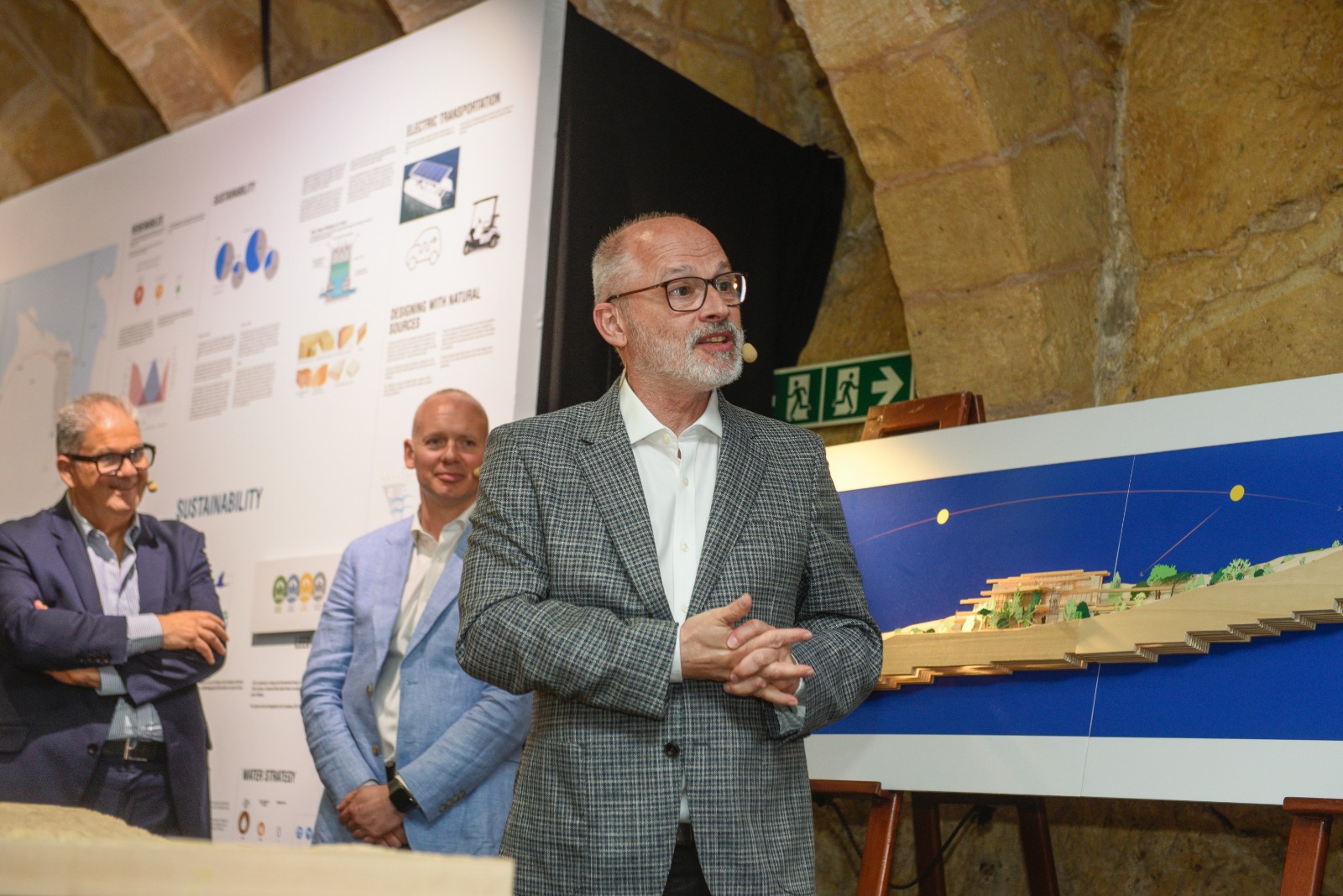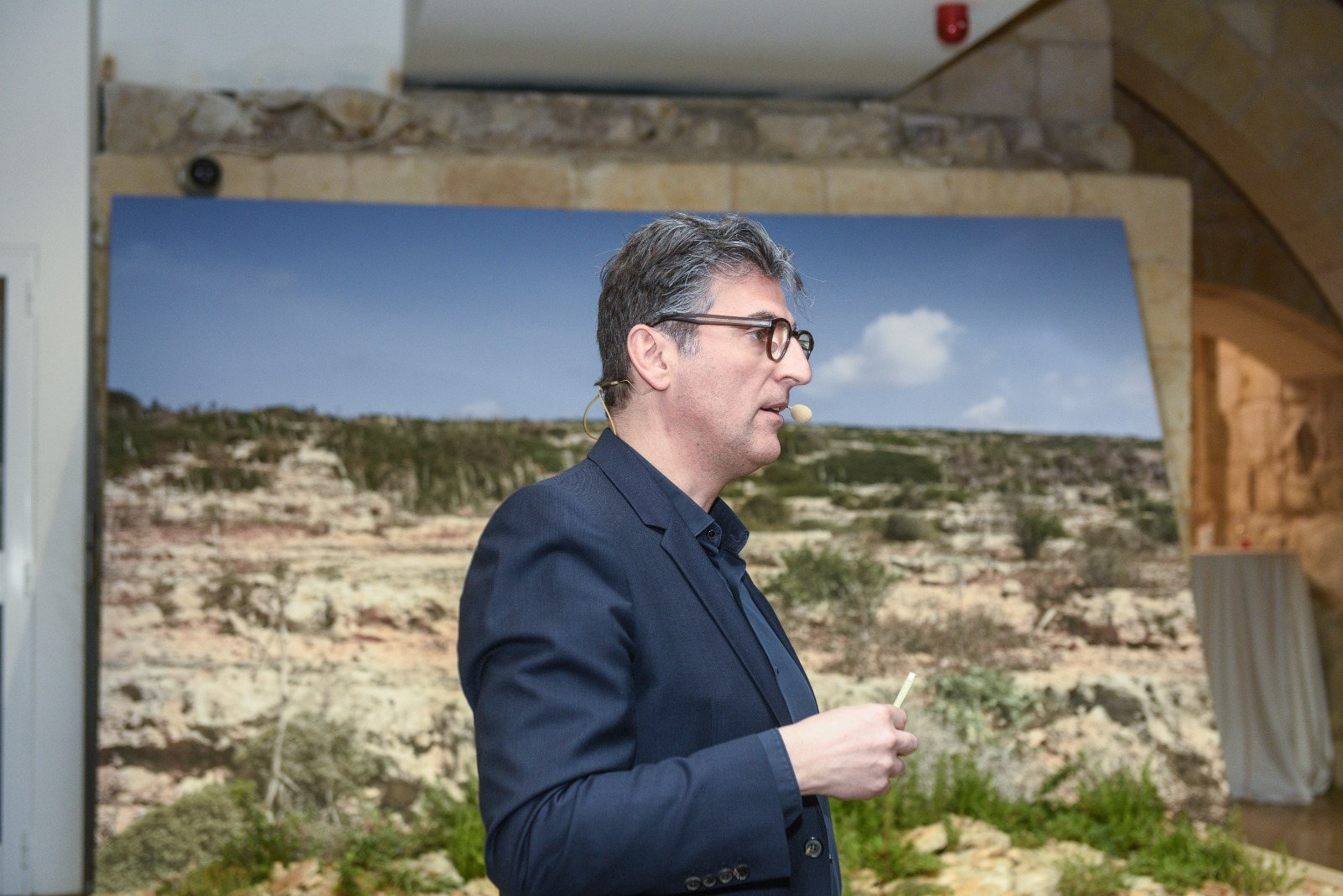Over the weekend, HV Hospitality launched an exhibition to unveil its sustainability vision for the redevelopment of Comino Hotel.
Having already been approved by the Environment and Resources Authority, the new Comino Hotel and Bungalows are currently awaiting the green light from the Planning Authority. Meanwhile HV Hospitality has launched an exhibition, entitled ‘Comino Hotel Reimagined – A Sustainable Vision’ and is open to the public at the Girolamo Cassar Hall at the Mediterranean Conference Centre, Valletta, seven days a week from 10am to 6pm
The sustainable-luxury project will be managed by hospitality brand Six Senses, which operates on a league of its own with regards sustainability within the hospitality industry. It operates 22 hotels and resorts across South East Asia and Europe, and is responsible for running some of the world’s most luxurious spas and resorts, some of which are located in highly remote and isolated areas.
Indeed, should HV Hospitality receive the green light from the Planning Authority to go ahead with its ambitious project, a spokesperson from Six Senses shared that 0.5 per cent of all revenue generated by the hotel, once it is operational, and will be contractually dedicated to supporting local initiatives – which could come in the form of environmental projects, social initiatives or support of local artists, in a bid to enhance and support the local community within which it operates.

(Left to right) Melo Hili, CEO, Hili Ventures, Edward Clarke – Building Services Project Director, Arup and Franck Franjou, Lighting Designer
The footprint of the proposed project will be 5,122 square metres smaller than the current site, but will consist of more gross floor area than the existing site partly due to the “fragmented” style of architecture, as lead architect Antonio Belvedere explained. Some parts of the current built footprint will be regenerated into garigue land and both the hotel and bungalow sites will be receded from the foreshore.
The exhibition features a 1:1 scale model of a part of this recreated garigue, made up of demolition waste collected on site, and featuring some of the 1,500 mother plants being propagated for the regeneration. More than 55,000 endemic trees, plants and shrubs will cover the terraces, rooftops and landscaped areas of the project and will be planted for the regenerated garigue.
The exhibition was addressed by Hili Ventures CEO Melo Hili, lead architect Antonio Belvedere, a spokesperson from Six Senses as well as consultants engaged by HV Hospitality to oversee landscaping, best-in-class engineering practices, as well as a lighting (or rather darkness) specialist.

Antonio Belvedere, Lead Architect of the new Comino hotel and bungalows (Founder, Belvedere Architecture)
Paul Pires da Fonte spoke about working with landscape architect Michel Desvigne on the garigue regeneration process. Edward Clarke from sustainable engineering firm Arup spoke about solutions to reduce energy consumption and eliminate water waste. Lighting designer Frank Franjou spoke about his vision to protect the night sky by ensuring low lighting through the site. Vitalija Katine represented Six Senses.
Opening the exhibition, Mr Hili stressed that this ambitious €100 million project could mark a new chapter for Malta’s tourism industry, with a genuine focus finally being laid on quality rather than volume and quantity.
On the team HV Hospitality has engaged to see through the design of the hotel and bungalows, Mr Hili shared that international feedback has been immensely positive and that the project could put Malta on the map within this segment of the tourism industry.
“When you look at where they have come from, what they have done and what they have planned, it’s quite amazing,” Mr Hili said in comments to WhosWho.mt.
“It wasn’t a team that was easily put together. Experts like these want to know what you are doing before they put their name to a project like this.”
The exhibition featured detailed plans on all aspects of the project’s design. From landscaping and habitat restoration, topography and marine biodiversity, pedestrian pathways and drainage strategy, the level of information presented was dizzying.
The hotel will have a dedicated marine biologist employed full time to monitor the impact the establishment and its guests are having on the local flora and fauna. The professional would be tasked with monitoring environmental markers, thereby understanding how exactly the establishment is impacting the surrounding area.
It was also shared that Six Senses, as a minimum, accepts that its establishments have a Silver LEED certification. LEED certification is a globally recognised standard of sustainability achievement and can be awarded for all building types in all building phases.
For Comino Hotel, the spokesperson for Six Senses revealed that the project team is aiming to achieve the much-coveted Platinum LEED certification, the highest of four levels which has been awarded to fewer than 20 hotels around the world.
So how does a hotel that must meet a certain level of comfort and standards manage to champion sustainability? Take drainage systems for example. It was shared that the old Comino Hotel, which closed its doors for good in 2019, discharged all drainage into the sea. Under the reimagined hospitality establishment, however, all drainage will be processed on site, and used for irrigation and flushing, with nothing being discharged into the sea.
The hotel is being designed in such a way that it will be almost fully self-sufficient for its cooling requirements in summer and self-sufficient for heating requirements in winter via a low energy geothermal system. This is being done partly thanks to bore holes under the hotel and bungalows that will absorb heat into the rock in summer and release heat into indoor spaces in winter.
All landscaping is being undertaken with local and indigenous flora, and age-old techniques are being employed across the hotel’s footprint to handle run-off from heavy winter rainfall.
The luxury resort will be entirely plastic free, while a strong emphasis has been placed on avoiding light pollution. This is being achieved by designing lighting in a way that respects the nightscape, leaving local wildlife free and undisturbed by human activity.
And, while the public has continued to voice concerns about what is going to happen to one of Malta’s most loved areas, HV Hospitality invites the public to attend and learn about the company’s plans for Comino.
Main Image:
